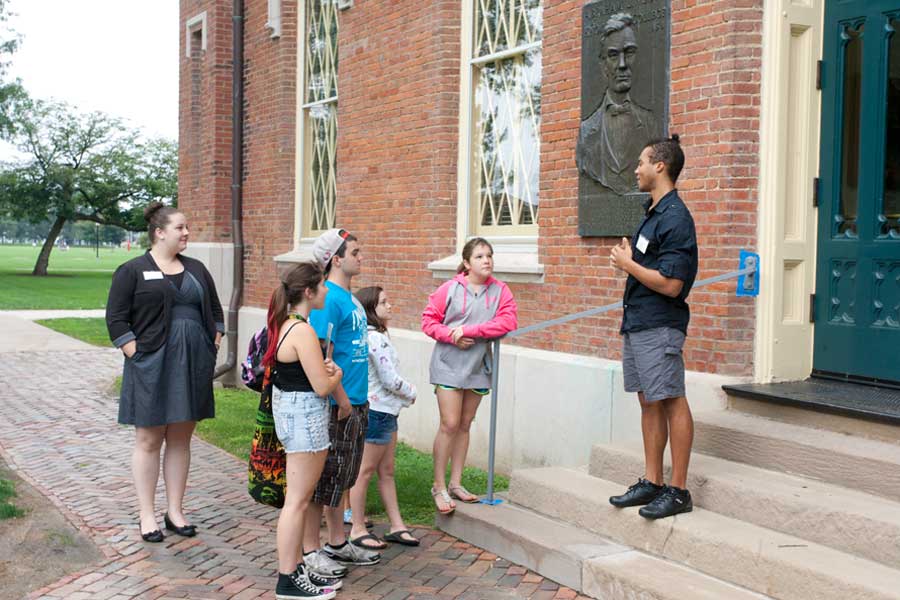

Venture Boldly

Office of Communications
2 East South Street
Galesburg, IL 61401


Two students in the Knox College Fencing Club crossed blades earlier this month on a sidewalk south of Old Main, the Lincoln-Douglas Debate site on the Knox campus in Galesburg.
Swordplay within view of the debate site recalls the day, Sept. 22, 1842, 170 years ago, and some 16 years before the debate, when Abraham Lincoln nearly engaged in a duel that could have resulted in injury or death to the future president.The story of the political disagreement between Lincoln and James Shields, which led to Shields challenging Lincoln to a duel on September 22, 1842, is covered in Honor's Voice, an award-winning book by Douglas Wilson, co-director of the Lincoln Studies Center at Knox College.
The feud began with a series of satirical letters critical of Shields, the state auditor, written by Lincoln and published anonymously in a Springfield newspaper. In one of the letters, "Lincoln's satire crosses the line... from the political [to] the personal," Wilson writes, and when Lincoln was revealed as the author, "Shields eventually challenged Lincoln to a duel..."
As the challenged party, Wilson writes, Lincoln was able to select the weapons, and he chose "cavalry broadswords of the largest size," according to Lincoln's friend Elias Merryman. Another of Lincoln's friends, Usher Linder, reported Lincoln's reasoning: "I did not want to kill Shields, and felt sure that I could disarm him... I didn't want the fellow to kill me, which I rather think he would have done if we had selected pistols."
Because dueling was illegal in Illinois, the match was set for an island in the Mississippi River that was part of Missouri. Hoping to avert the duel, friends of the adversaries arranged for Lincoln to concede that he had written the letters "solely for political effect," with no intent to injure the "personal or private character of standing of Mr. Shields as a gentleman or a man."
Lincoln, Shields and their respective parties went to the island, but when the moment of the duel arrived, "their seconds suddenly [stepped] between the combatants and [took] their swords from them."
Although Lincoln and Shields did not duel, hostility lingered between their factions -- a stark comparison with the relationship between Lincoln and Douglas as political rivals. While Douglas defeated Lincoln in the 1858 senatorial election, Lincoln is regarded as the "winner" of the debates, as they launched him to national prominence. Two years later they were opponents again, as Lincoln defeated Douglas in the 1860 presidential contest. Douglas reportedly held Lincoln's hat at Lincoln's inauguration and argued forcefully against Southern secession. Shortly before his death in 1861, Douglas embarked on an extensive speaking tour at Lincoln's request, encouraging border states to remain in the Union.
More about the Lincoln/Shields argument and its resolution is in Wilson's book, Honor's Voice, which won the Lincoln Prize from the Abraham Lincoln Institute, and the Barondess/Lincoln Award from Civil War Roundtable of New York. More about the Lincoln-Douglas Debates is in The Lincoln-Douglas Debates, The Lincoln Studies Center Edition, by Wilson and Rodney Davis, co-directors of the Lincoln Studies Center.
Published on September 21, 2012